Proteases
Proteases, also known as peptidases or proteolytic enzymes, consists of a large number of enzymes catalyzing the hydrolysis of peptide bonds and subsequently resulting in the degradation of protein substrates into amino acids. Proteases are involved in a wide range of human diseases, including cancer, neurodegenerative disorders, inflammatory diseases and cardiovascular diseases. Thus numerous proteases inhibitors (small molecules and proteins) have been identified to block activity of proteases. Proteases inhibitors can be classified into different types based on the class of proteases they inhibit through two general mechanisms, irreversible “trapping” reactions and reversible tight-binding reactions. Proteases inhibitors have been used as diagnostic or therapeutic agents for the treatment of proteases-related diseases.
-
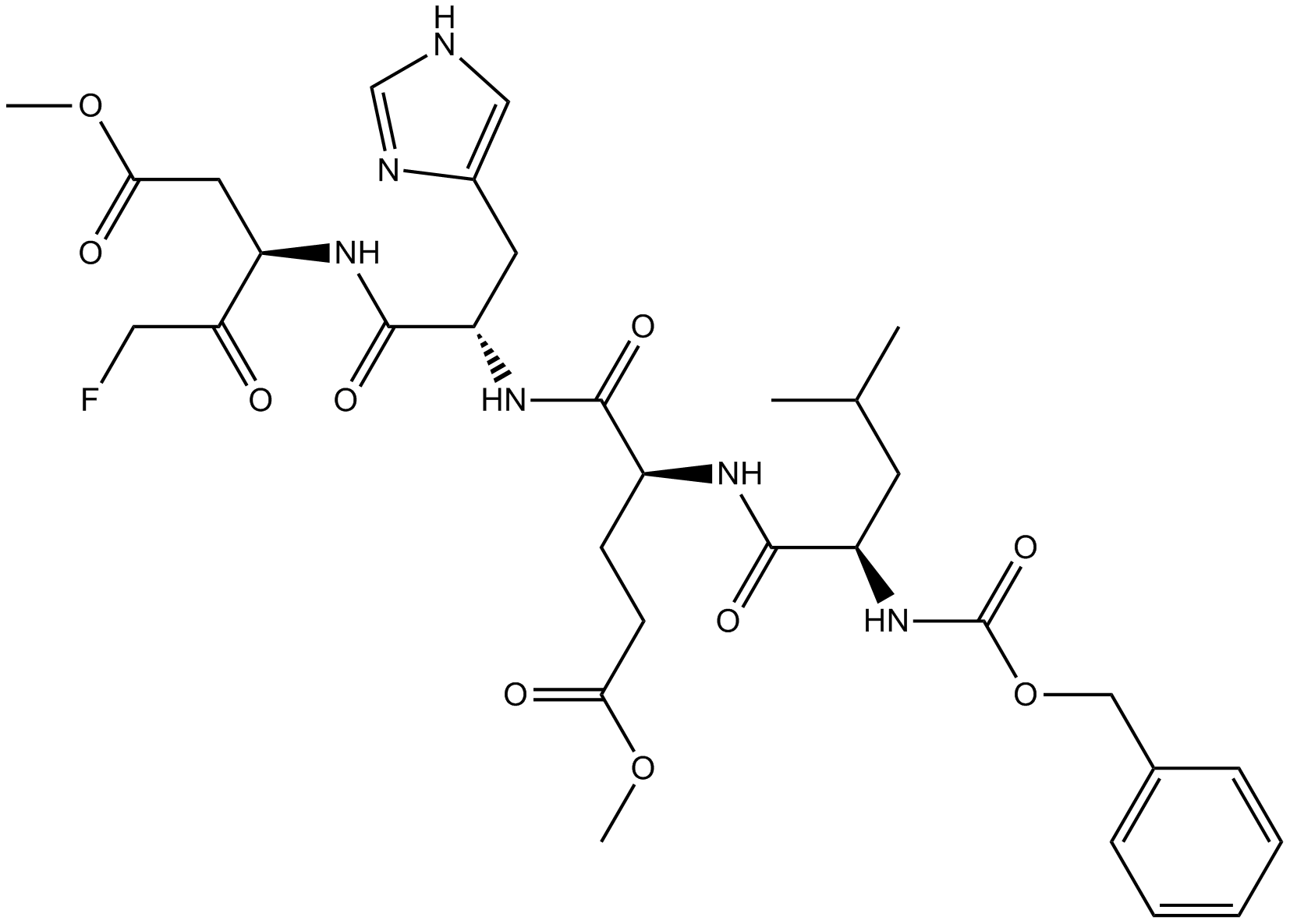 B3233 Z-LEHD-FMK8 CitationTarget: CaspasesSummary: Irreversible Caspase-9 inhibitor.
B3233 Z-LEHD-FMK8 CitationTarget: CaspasesSummary: Irreversible Caspase-9 inhibitor. -
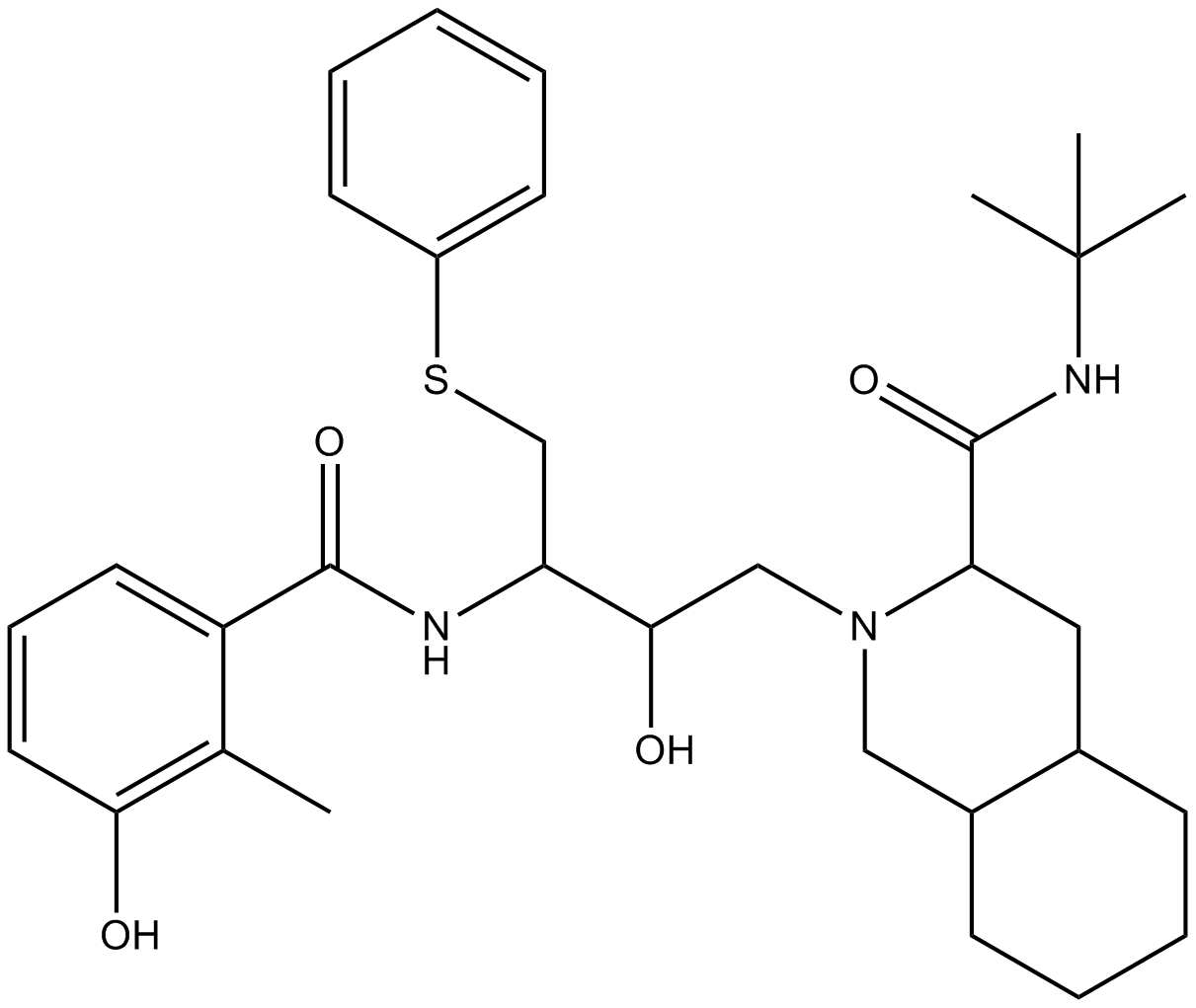 B1122 NelfinavirSummary: HIV-1 protease inhibitor
B1122 NelfinavirSummary: HIV-1 protease inhibitor -
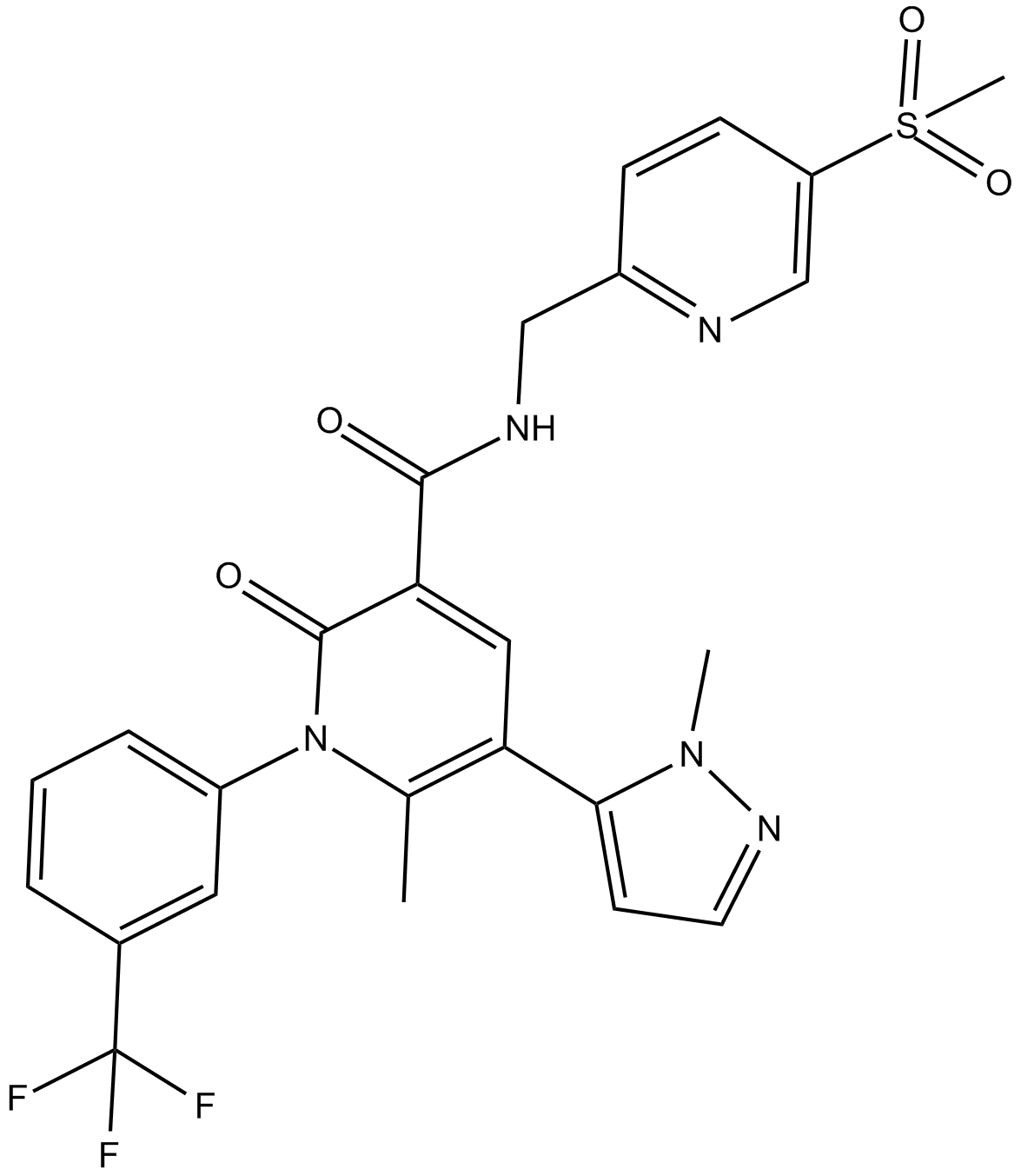 B1037 AlvelestatTarget: NESummary: NE inhibitor
B1037 AlvelestatTarget: NESummary: NE inhibitor -
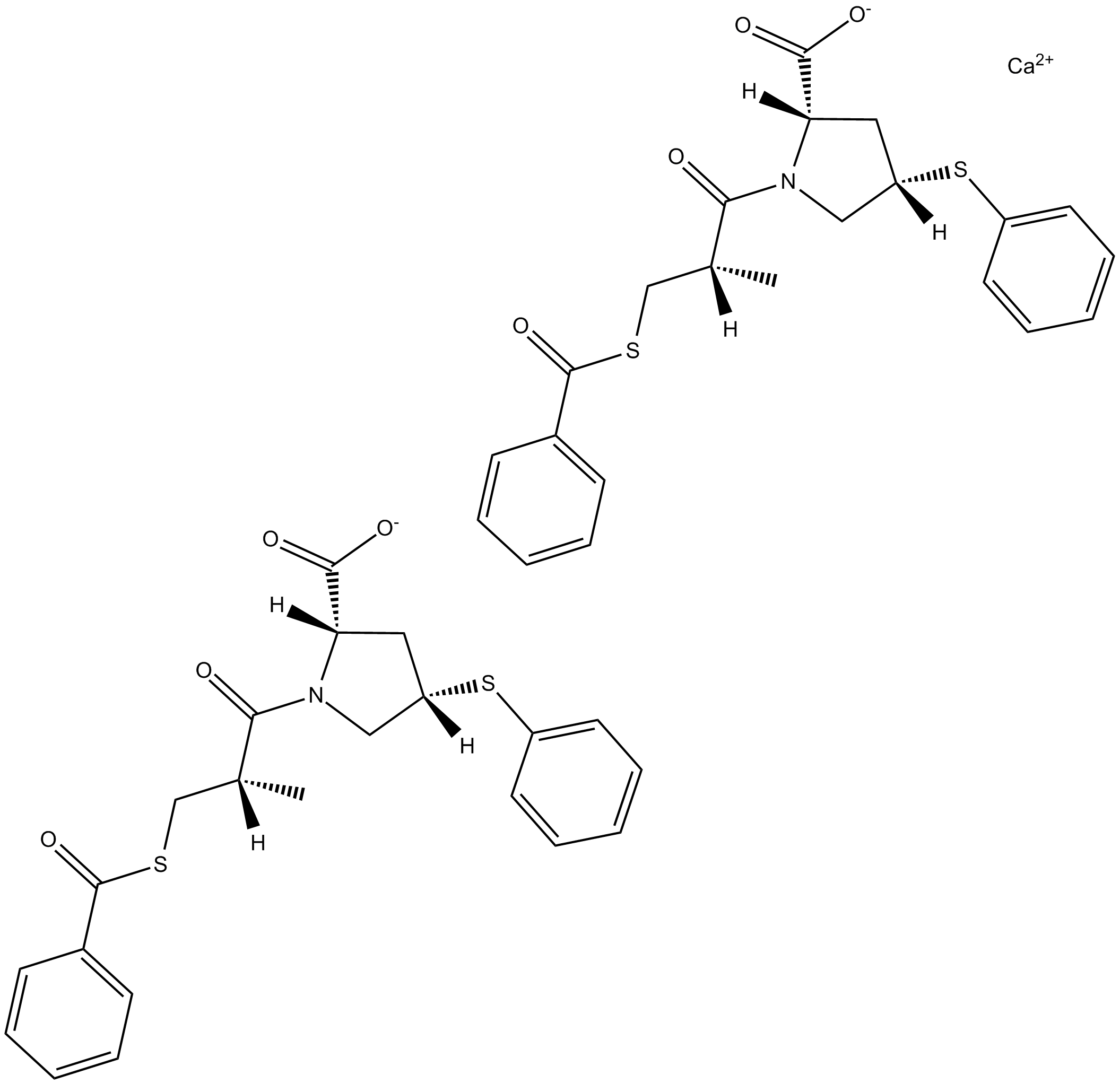 B3468 Zofenopril calciumSummary: angiotensin converting enzyme (ACE) inhibitor
B3468 Zofenopril calciumSummary: angiotensin converting enzyme (ACE) inhibitor -
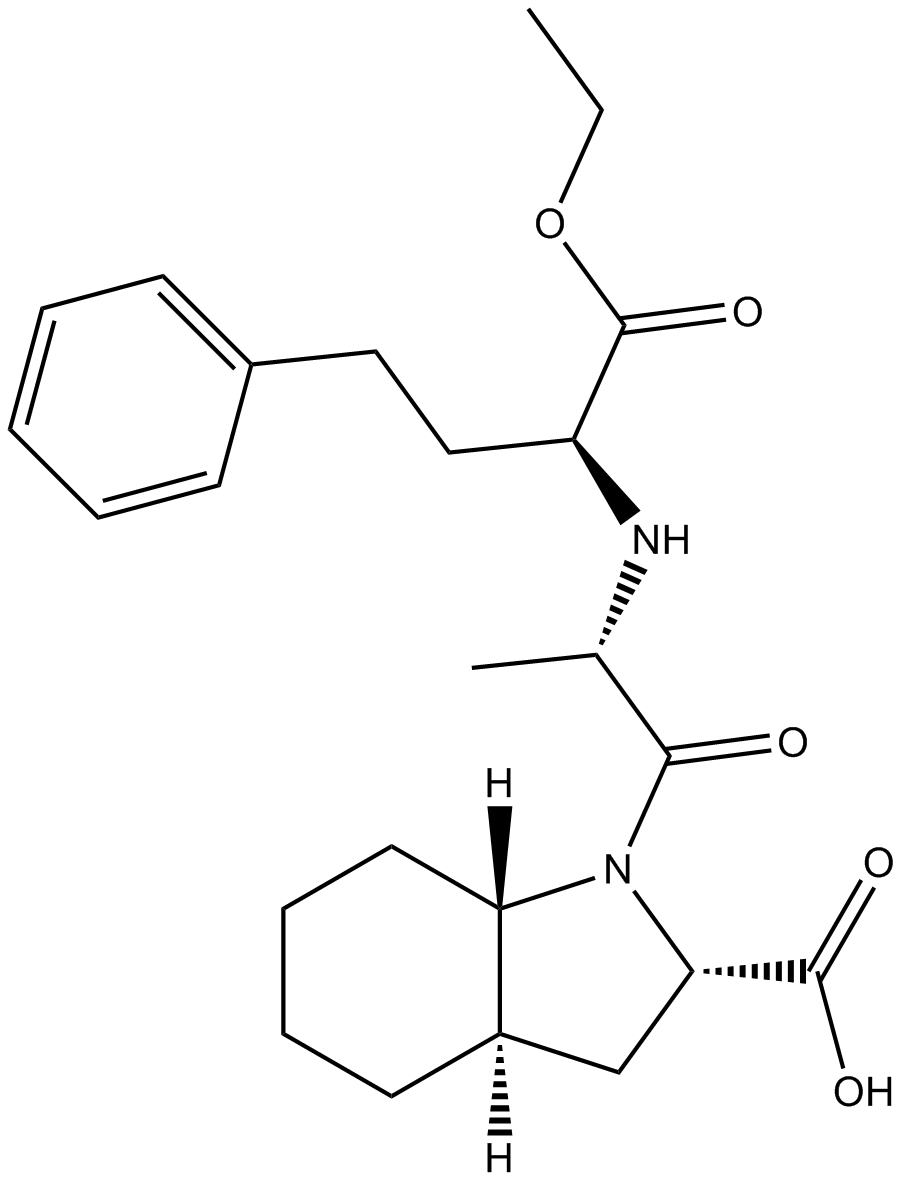 B3540 TrandolaprilSummary: angiotensin-converting enzyme (ACE) inhibitor
B3540 TrandolaprilSummary: angiotensin-converting enzyme (ACE) inhibitor -
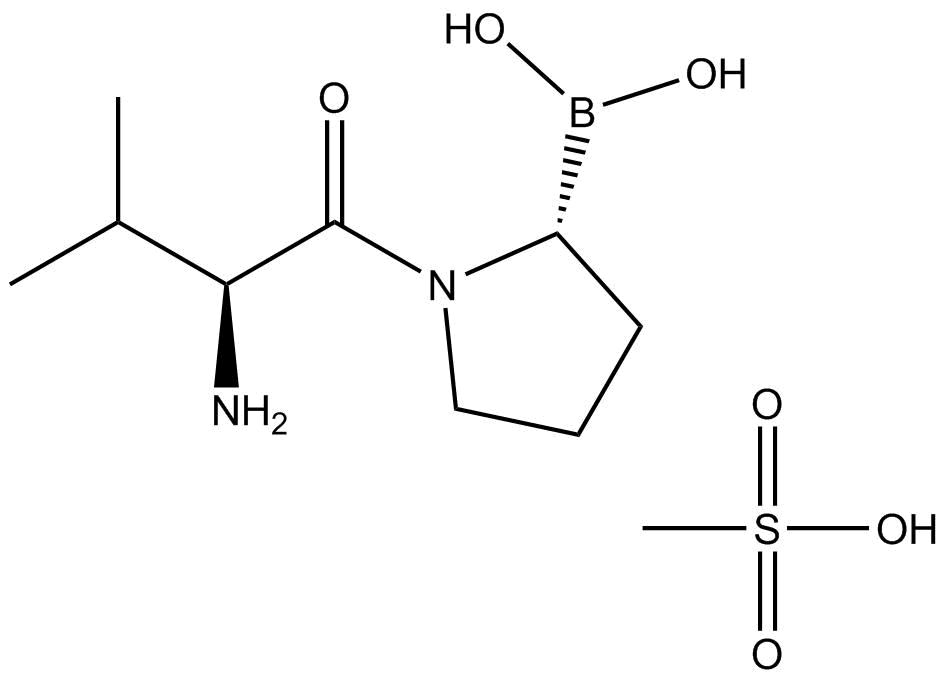 B3941 Talabostat mesylate2 CitationTarget: DPP-4Summary: orally active, specific inhibitor of DPP4
B3941 Talabostat mesylate2 CitationTarget: DPP-4Summary: orally active, specific inhibitor of DPP4 -
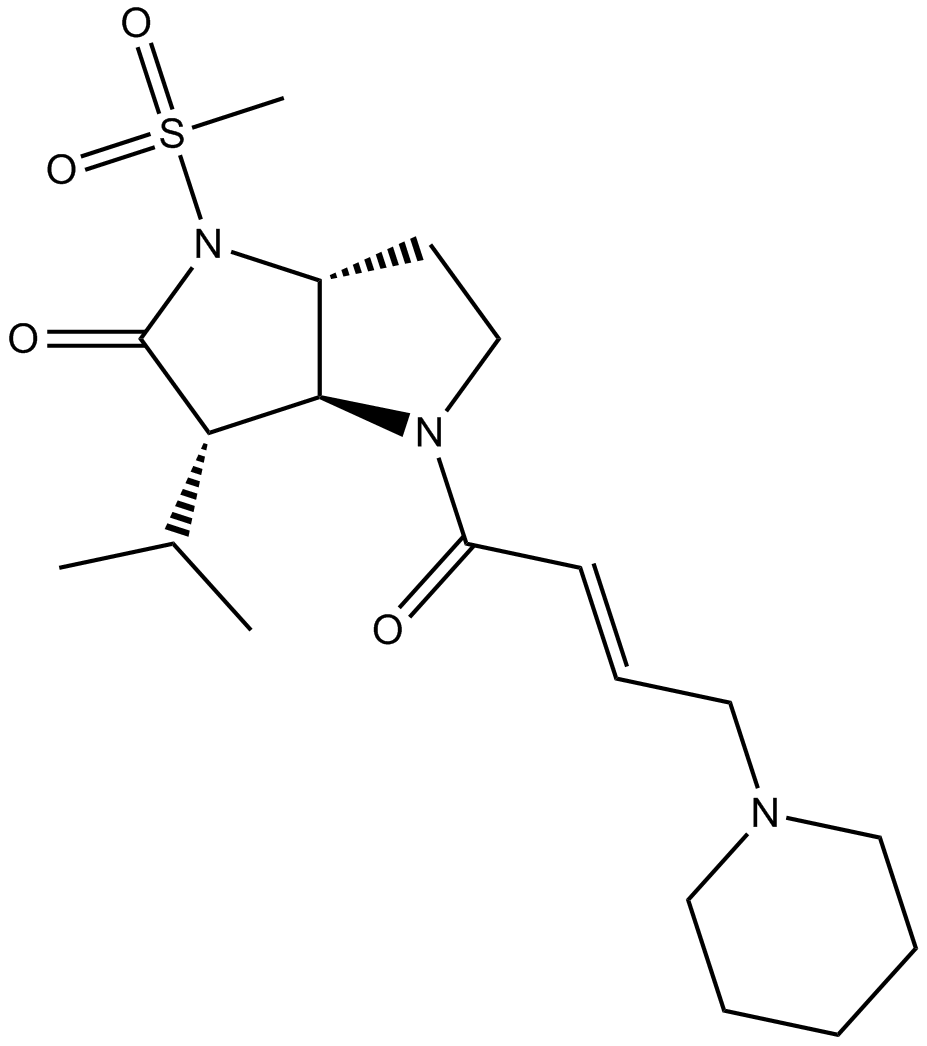 B4675 GW311616Summary: inhibitor of human neutrophil elastase(HNE)
B4675 GW311616Summary: inhibitor of human neutrophil elastase(HNE) -
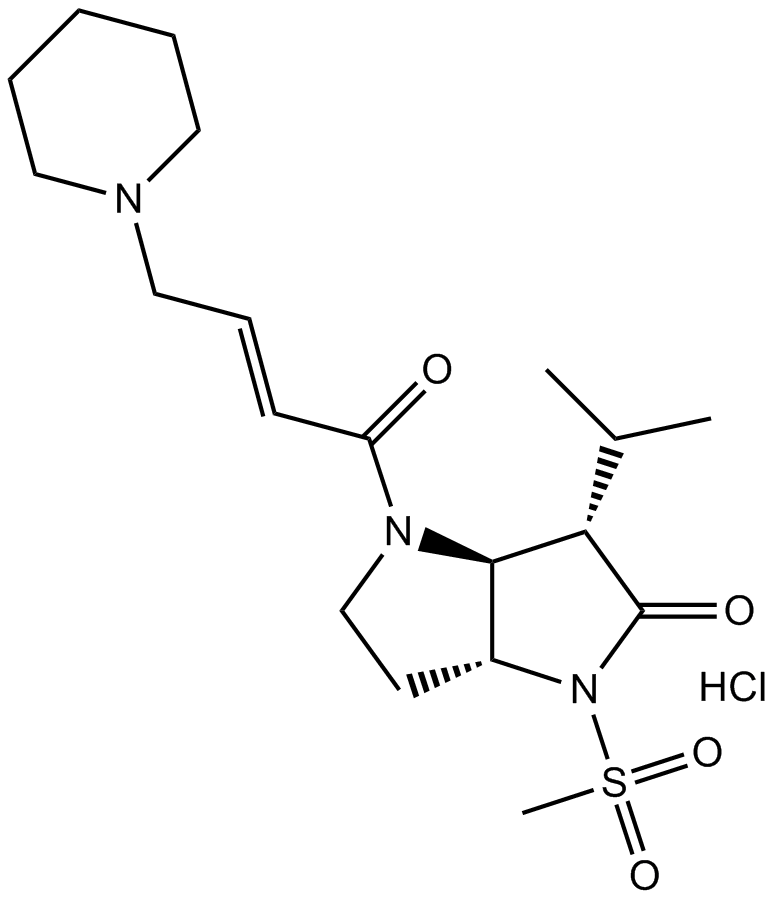 B4676 GW311616 hydrochlorideSummary: HNE inhibitor
B4676 GW311616 hydrochlorideSummary: HNE inhibitor -
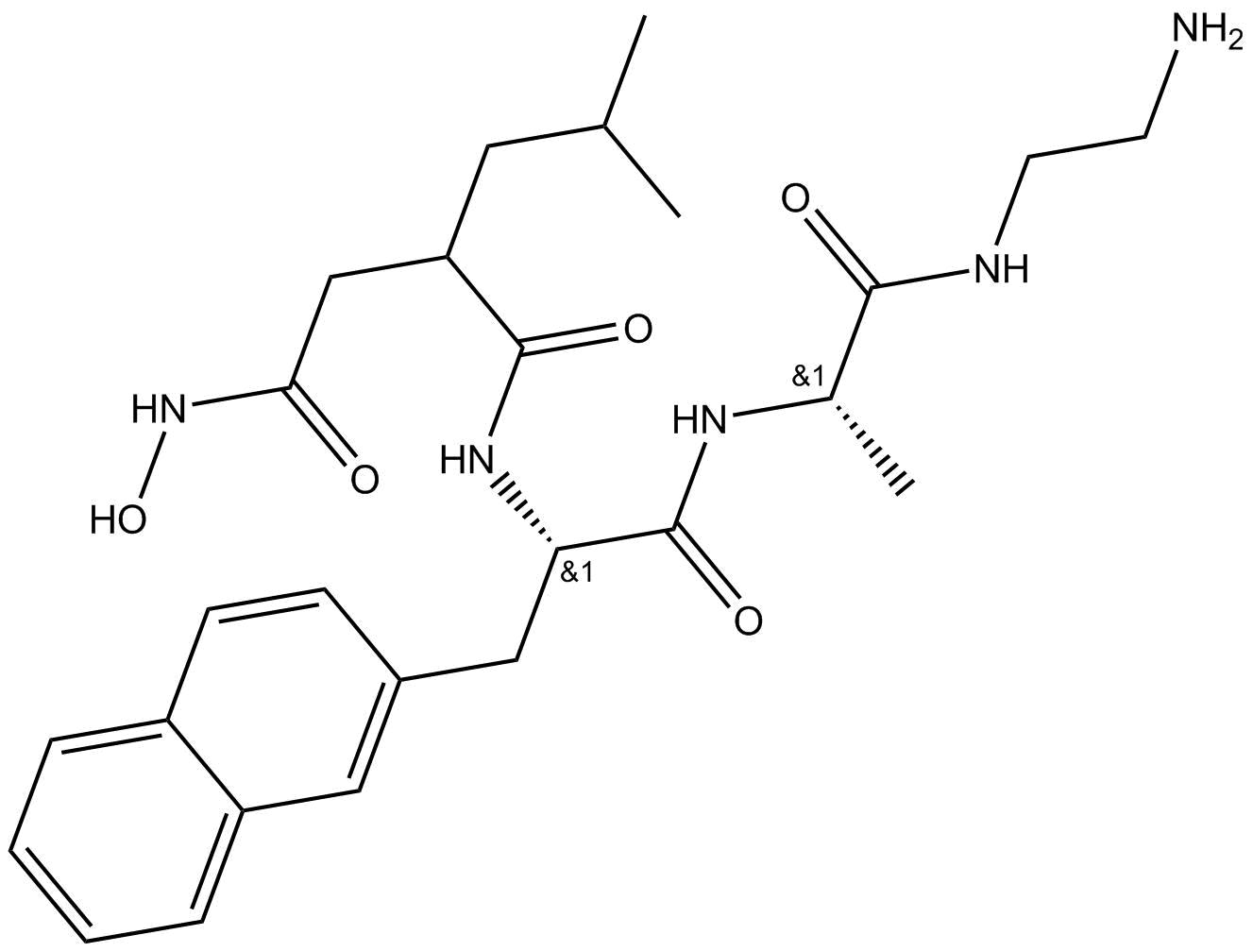 B4686 TAPI-12 CitationTarget: MMPSummary: TACE/ADAM17 inhibitor
B4686 TAPI-12 CitationTarget: MMPSummary: TACE/ADAM17 inhibitor -
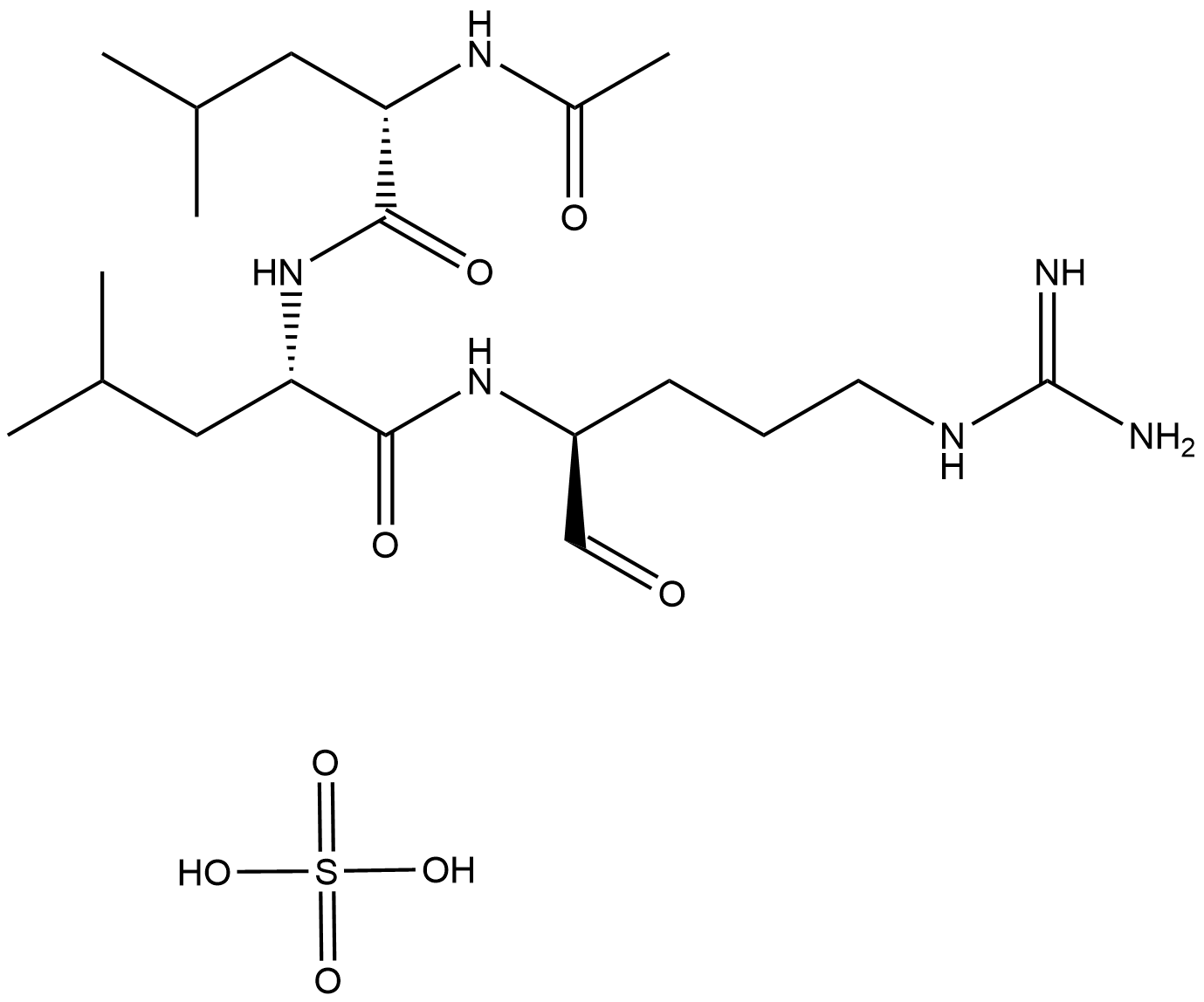 A2570 Leupeptin, Microbial5 CitationTarget: Cathepsins|Calpains|TrypsinsSummary: serine and cysteine proteases inhibitor
A2570 Leupeptin, Microbial5 CitationTarget: Cathepsins|Calpains|TrypsinsSummary: serine and cysteine proteases inhibitor

